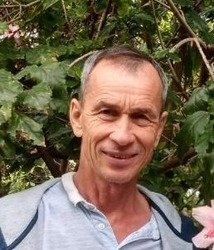‘It won’t be difficult for the Tatar breed of horses to reach Altai’
Horses of the Tatar breed are being prepared for the first ever equestrian run Tatarstan-Altai
The preparation of horses of the Tatar breed for the first horse race to the Altai in the history of the republic is in full swing in Tatarstan. Six stallions will be transported from horse farms to the Kazan Hippodrome for training in June. The participants of the run will have to spend 38 days on the road. They start on July 24 and finish on August 30 at the monument “Altai — the heart of Eurasia”, presented by the first president of the republic and State Adviser of Tatarstan Mintimer Shaimiev to the 250th anniversary of the region's joining Russia. Whose horses will go on this historical route and how many kilogrammes of weight the riders will have to lose — read the details in the material of Realnoe Vremya.
“Horses have to get used to each other”
Six selected stallions of the Tatar breed have been preparing for a long run for more than six months. All of them come from the stable yard of the famous horse breeder, Farit Nabiullin, from Leninogorsk district. It was he who opened the Centre for the Restoration of the Tatar breed of horses in his village of Verkhny Karan in 2010. Now there are about 250 heads of Tatar horses in his farm. Moreover, their number is growing literally every day, because now many mares are pregnant.

As Farit Nabiullin explained, the preparation of horses is not a fast process. On his horse breeding farm, the training of stallions began six months ago. In winter and early spring, horses walked long distances through the snow, climbed and descended from the mountains to get a good load.
“Now training sessions are most often held on weekends. We walk hundreds of kilometres with them. We complicate the path, let them gallop, overcome the mountainous terrain. The rest of the days we let them go to our herd, each stallion has his mares, little foals, they guard them, take care of them, satisfy natural needs and stay in shape. Horses live in a natural environment. Therefore, they endure both heat and cold. No special food is needed for them," the horse breeder said.
According to Nabiullin, now the stallions who will take part in the race are trying to keep together so that they get used to each other:
“They can fight and play like wrestlers before competitions. If we keep them together with all the other horses, then there is a certain unpredictability, it is impossible to predict their behaviour. But in the case when they live on the same territory, separated from others, there is a kind of tuning in to each other, a clear hierarchy is already being established, and this is also very important.”
“We spend days with horses”
If the stallions have already got used to each other, then their riders have never spent so much time together. There are four of them in total. Young people come from Tyulyachinsky and Baltasinsky districts. All of them have been professionally engaged in horses for many years. The senior jockey is champion of equestrian sports Firzar Giniyatullin, the son of the eminent horse breeder, head of Plemreproductor named after S.Sh. Giniyatullin PLC horse breeding farm, Sagit Giniyatullin.
The team of riders includes:
- Firzar Giniyatullin — Tyulyachi village,
- Rifnur Timerbayev — Uzyak settlement of Tyulyachinsky district,
- Rustem Nuriev — Baltasi village,
- Iskander Vakhitov — village of Starye Zyuri, Tyulyachinsky district.
“All of them once worked with me on a horse breeding farm. All are professional riders. They regularly participate in competitions, now they are preparing for the Sabantuy races. We are not preparing for the race separately, because we are in this environment every day, literally spending days with horses. We've all been working with horses for a very long time. I myself have been on a horse since I was six years old," the jockey said.
The Giniyatullins' farm now has about 150 heads of the Tatar breed of horses. Besides, there are Arab thoroughbred, English thoroughbred horses.
“Horses of the Tatar breed are primarily distinguished by that they adapt very quickly. They are children of nature itself, not an artificially bred breed. They are hardy in any weather. For example, our horse farm also has English-bred horses. They are much more gentle and whimsical: they start to freeze and shiver even from the rain, they can't stand midges and mosquitoes. And it's harder to give birth to such mares. If there are no problems with the Tatar breed at all: the mare gives birth herself, the foal immediately gets on its feet, starts drinking mother's milk, then with the English — a completely different situation. It is necessary to help them in everything, hold the foal, feed it, bring it to the udder," the rider explained.
According to the original idea, the horse run was planned to last three months, Firzar Giniyatullin said. They intended to spend June, July and August on the way.
“At first, there were thoughts of refusing the invitation. After all, this is a long time, especially in the midst of work. We have 300 heads of horses in our farm, they need to be taken care of. After we decided to reduce the running time to one month, we reconsidered our decision. Moreover, in August, there will be a little less work, haymaking will already have taken place," the young farmer explained.
As the master of equestrian sports noted, now young people are training separately with stallions of the Tatar breed. With horses, everything is the same as with athletes, according to the regime — diet, nutrition, vitamins.
“We are ready for a long road. Previously, when I was engaged in equestrian sports professionally, I had to ride horses for 100 km. Now I have left professional sport. To do this, you need to cut weight. With age, it already harms the body. For professional racing, I would have to lose 15 kilogrammes. That is, I usually weighed about 67 kg, for competitions I had to cut the weight up to 52 kg. Such drastic changes will not be required for the run. Although I think I'll still have to lose weight. To make both the horse and the rider feel comfortable, the weight should not exceed 60 kg. That's enough. The upcoming race is still not a horse race, here we are not striving for a sporting result. We will go slowly," the jockey explained.
“Our goal is not sports achievements”
About the fact that the main purpose of the race is not a competition, but the popularisation of horses of the Tatar breed, national traditions and strengthening ties with fraternal peoples — leading adviser of the Department for the development of livestock industries Ayrat Khabibullin told the publication:

Stages of the horse run:
- from July 24 to July 26 — the territory of the Republic of Tatarstan,
- July 26 — Republic of Bashkortostan,
- from July 26 to July 29 — Perm Krai,
- from July 29 to August 3 — Sverdlovsk Oblast,
- from 3 to 7 August — Tyumen Oblast,
- from 7 to 13 August — Omsk Oblast,
- from 13 to 19 August — Novosibirsk Oblast,
- from August 19 to 22 — Altai Krai,
- from 22 to 25 August — Altai Republic.
According to Ayrat Khabibullin, the team includes four riders, six horses, an escort, a veterinarian, two drivers, two units of special equipment.
“Six horses will not go at once. Every day, there will be two horses on the way, they will change. The rest will rest. That is, the horse will walk for one day and rest for two days. Difficult areas — forests, ravines, swamps — will be completely driven by horse-drawn wagons. And on the plains and closer to the settlements for 15-20 km riders will move on horseback," explained the organiser.
From June 20, Tatar-bred horses will be transported from the Leninogorsk district to the Kazan Hippodrome, the animals will continue to train at its base.